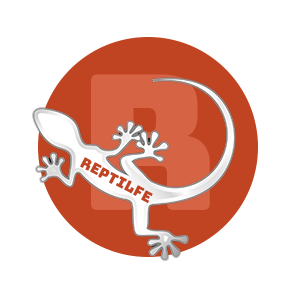Introduction to Reptile Grooming
Reptile grooming is an essential part of maintaining the health and well-being of your scaly friend. It involves taking care of their skin and scales, which are unique to reptiles and require special attention. In this article, we will delve into the importance of reptile grooming and introduce you to the Zen of reptile grooming, a mindful approach to keeping your reptile healthy and happy.
- Understanding the Importance of Reptile Grooming
- Introduction to the Zen of Reptile Grooming
Reptile grooming is not just about making your pet look good. It’s about ensuring their health and longevity. Reptiles have unique skin and scales that need proper care to prevent diseases and infections. Regular grooming can help detect early signs of health issues, such as scale rot or skin infections. It also helps to remove any shed skin that hasn’t come off naturally, which can cause discomfort or health problems if left unattended.
The Zen of reptile grooming is a mindful approach to caring for your reptile. It’s about understanding your reptile’s needs and responding to them in a calm, patient, and attentive manner. This approach not only benefits the reptile but also creates a stronger bond between you and your pet. The Zen of reptile grooming involves observing your reptile closely, understanding their behaviors and responses, and adjusting your grooming techniques accordingly. It’s about creating a peaceful and stress-free environment for your reptile during grooming sessions.
In the following sections, we will delve deeper into the specifics of reptile skin and scales, how to maintain them, and how to keep them healthy. We will also share some case studies of successful reptile grooming and conclude with mastering the Zen of reptile grooming. So, let’s embark on this journey of understanding and caring for our reptile friends better.
Understanding Reptile Skin and Scales
Reptiles, with their unique skin and scales, require special care and attention. Let’s delve into the fascinating world of reptile skin health and understand why it’s crucial to maintain it.
Reptile Skin Health
Reptile skin health is an essential aspect of their overall well-being. It’s not just about aesthetics; a reptile’s skin and scales play a vital role in their survival and daily life.
- Importance of maintaining reptile skin health
- Common skin and scale issues in reptiles
Reptile skin health is more than skin deep. It’s their first line of defense against external threats, helps in regulating body temperature, and aids in hydration. Healthy skin and scales are a sign of a healthy reptile. Neglecting skin health can lead to serious health issues, affecting the reptile’s quality of life.
Reptiles can suffer from a variety of skin and scale issues. Some common problems include scale rot, skin infections, and shedding issues. Scale rot, typically caused by unclean habitats, can lead to serious infections if left untreated. Skin infections, often due to bacteria or fungi, can cause discomfort and other health problems. Shedding issues, while natural and common, can become problematic if the reptile’s environment isn’t properly maintained.
Understanding these issues can help in early detection and treatment, ensuring your reptile stays healthy and happy. Remember, a well-cared-for reptile is a content reptile!
Healthy Reptile Scales
Reptile scales are a key part of their overall health. It’s important to know what healthy scales look like and how to spot any problems. Let’s dive into these topics.
- Characteristics of Healthy Reptile Scales
Healthy reptile scales have specific characteristics. They are smooth and shiny, without any cracks or breaks. The color should be consistent, without any discoloration or spots. The scales should be firm and not loose. They should also be free from parasites and other foreign bodies.
| Characteristic | Description |
|---|---|
| Smoothness | No cracks or breaks |
| Color | Consistent, no discoloration or spots |
| Firmness | Not loose |
| Free from Parasites | No foreign bodies present |
- How to Identify Unhealthy Scales
Unhealthy reptile scales can be a sign of various health problems. If the scales are loose, discolored, or have spots, it could indicate a disease or infection. Unhealthy scales may also have a dull appearance, instead of the normal shine. If you notice any of these signs, it’s important to consult a vet immediately.
| Sign | Possible Problem |
|---|---|
| Loose Scales | Disease or infection |
| Discoloration or Spots | Disease or infection |
| Dull Appearance | Unhealthy scales |
Remember, the health of your reptile’s scales is a reflection of their overall health. Regularly check their scales and consult a vet if you notice any changes. This will ensure your reptile stays healthy and happy.
Reptile Scale Maintenance
Keeping your reptile’s scales in top condition is a key aspect of their overall health and wellbeing. Let’s delve into the best practices and common mistakes in reptile skin and scale care.
Reptile Skin and Scale Care
Reptile skin and scales require specific care to ensure they remain healthy and vibrant. Here are some important points to consider:
- Best practices for reptile skin and scale care
- Common mistakes in reptile skin and scale care
Regularly inspect your reptile’s skin and scales for any signs of damage or disease. This includes looking for discoloration, abnormal shedding, and parasites. It’s also crucial to provide a suitable environment for your reptile, including the right temperature, humidity, and lighting. A balanced diet is also essential for maintaining healthy skin and scales.
One of the most common mistakes is neglecting regular inspections of your reptile’s skin and scales. This can lead to unnoticed health issues that could become serious if left untreated. Another common mistake is providing an inappropriate environment for your reptile, such as incorrect temperature or humidity levels. Overfeeding or underfeeding your reptile can also lead to skin and scale problems.
In conclusion, maintaining your reptile’s skin and scales is not a difficult task if you follow the best practices and avoid common mistakes. Regular inspections, providing a suitable environment, and a balanced diet are key to keeping your reptile healthy and happy.
Reptile Grooming Tips
Just like cats, dogs, and other pets, reptiles also need grooming. However, the process is a bit different due to their unique skin and scales. Here are some essential tips to help you groom your reptile pet effectively.
- Essential tools for reptile grooming
Before you start grooming your reptile, it’s important to have the right tools at hand. Here are some essential tools you will need:
- Reptile-safe brush: This is used to gently clean the reptile’s scales. Make sure it’s soft to avoid damaging the scales.
- Moisturizing spray: This helps to keep the reptile’s skin hydrated. It’s especially important for reptiles that live in dry environments.
- Scale conditioner: This is a special product that helps to maintain the health and shine of the reptile’s scales.
- Tweezers: These are useful for removing any shed skin that’s stuck to the reptile.
- Step-by-step guide to grooming your reptile
Grooming your reptile is not as complicated as it might seem. Here’s a simple step-by-step guide:
- Prepare your tools: Gather all your grooming tools and have them within easy reach.
- Brush the scales: Gently brush the reptile’s scales to remove any dirt or debris. Always brush in the direction of the scales to avoid causing discomfort.
- Apply moisturizing spray: Spray the reptile’s skin lightly with the moisturizing spray. This will help to keep the skin hydrated and healthy.
- Condition the scales: Apply the scale conditioner according to the product’s instructions. This will help to keep the scales shiny and healthy.
- Remove shed skin: If there’s any shed skin stuck to the reptile, gently remove it using the tweezers. Be careful not to pull too hard as this could hurt the reptile.
Remember, every reptile is unique and may require different grooming techniques. Always do your research and consult with a vet if you’re unsure about anything.
Keeping Reptile Skin Healthy
One of the key aspects of maintaining the health and beauty of your reptile’s skin is its diet. The food your reptile consumes plays a significant role in its skin health. Let’s delve into the details.
Diet and Reptile Skin Health
Just like humans, reptiles also require a balanced diet for their overall well-being, including their skin health. The right diet can help keep their skin vibrant and healthy. Here are some insights into the role of diet in maintaining healthy reptile skin and some recommended foods.
- Role of diet in maintaining healthy reptile skin
- Recommended foods for healthy reptile skin
A reptile’s diet directly impacts its skin health. Nutrient-rich foods can help maintain the shine and texture of the skin, prevent skin diseases, and aid in the shedding process. For instance, a lack of vitamin A in a reptile’s diet can lead to skin problems like hyperkeratosis, where the skin becomes too thick.
Depending on the species, reptiles need a mix of fruits, vegetables, and proteins for optimal skin health. For example, leafy greens, bell peppers, and squash are excellent for herbivorous reptiles. Carnivorous reptiles, on the other hand, benefit from a diet of insects, fish, and small mammals. Always ensure that the food is fresh and clean to avoid any skin infections.
In conclusion, a well-balanced diet plays a crucial role in maintaining the health of your reptile’s skin. By providing the right foods, you can ensure that your reptile’s skin remains vibrant and healthy.
Environmental Factors and Reptile Skin Health
When it comes to maintaining the health of reptile skin, environmental factors play a crucial role. Two of the most significant factors are temperature and humidity, and exposure to UVB lighting. Let’s delve into each of these aspects in detail.
- Impact of Temperature and Humidity on Reptile Skin
Reptiles are ectothermic creatures, which means they depend on their environment to regulate their body temperature. Therefore, maintaining the right temperature in their habitat is essential for their skin health. Too much heat can cause the skin to dry out and crack, while too little can lead to slow metabolism and reduced shedding.
Humidity also plays a vital role in reptile skin health. For instance, reptiles from tropical regions need a high humidity level to keep their skin moist and healthy. On the other hand, desert reptiles thrive in low humidity. Incorrect humidity levels can lead to problems like improper shedding, skin infections, and dehydration.
- Importance of UVB Lighting for Reptile Skin Health
UVB lighting is another crucial environmental factor for reptile skin health. Reptiles need exposure to UVB light to produce vitamin D3, which helps in the absorption of calcium. Calcium is necessary for healthy skin and scales. Without adequate UVB light, reptiles can suffer from metabolic bone disease, which can affect their skin and overall health.
UVB lighting also helps in regulating the reptile’s day-night cycle, which can indirectly affect their skin health. A disrupted day-night cycle can lead to stress, which can manifest in skin problems.
In conclusion, understanding and providing the right environmental conditions is key to maintaining healthy skin in reptiles. By ensuring the correct temperature, humidity, and UVB lighting, you can help your reptile thrive and keep its skin in optimal condition.
Reptile Skin and Scale Grooming Case Studies
Let’s take a look at some real-life examples of reptile skin and scale grooming. These case studies will help us understand the process better and learn from the experiences of others.
- Case study 1: Successful reptile skin and scale grooming
Meet Charlie, a Bearded Dragon. His owner, Mr. Smith, has been successfully maintaining Charlie’s skin and scales for over three years. Mr. Smith follows a routine of weekly baths, using a soft toothbrush to gently scrub Charlie’s scales. He also ensures Charlie gets enough sunlight for natural shedding.
Charlie’s diet is rich in vitamins and minerals, contributing to his healthy skin and scales. Mr. Smith also uses a reptile-safe moisturizer to keep Charlie’s skin hydrated. This routine has resulted in Charlie having a vibrant and healthy appearance, free from skin and scale issues.
- Case study 2: Overcoming challenges in reptile grooming
Next, we have Bella, a Ball Python. Bella’s owner, Mrs. Johnson, faced challenges in maintaining Bella’s skin and scales. Bella was suffering from scale rot, a common issue in reptiles due to improper care.
Mrs. Johnson consulted a reptile vet who advised her to improve Bella’s habitat conditions, ensuring it was clean and dry. She was also advised to apply a topical treatment to Bella’s affected scales. Mrs. Johnson followed these instructions diligently and noticed a significant improvement in Bella’s condition within a few weeks.
These case studies highlight the importance of proper grooming and care for reptile skin and scales. By learning from the experiences of others, we can ensure our reptiles stay healthy and happy.
Conclusion: Mastering the Zen of Reptile Grooming
As we reach the end of our journey into the world of reptile grooming, it’s important to reflect on the key takeaways and the final thoughts on the Zen of reptile grooming. The Zen of reptile grooming isn’t just about maintaining their physical appearance, but it’s also about understanding their needs and providing them with the best possible care.
- Key takeaways for maintaining healthy reptile skin and scales
Reptile skin and scales require special attention and care. Here are some key points to remember:
- Regularly check your reptile’s skin and scales for any signs of damage or disease. Early detection can make a huge difference in their health.
- Provide a proper diet to your reptile. A balanced diet rich in vitamins and minerals can help keep their skin and scales healthy.
- Ensure your reptile’s habitat has the right humidity level. Too little or too much humidity can harm their skin and scales.
- Regular grooming is essential. This includes gentle brushing to remove any loose scales and bathing to keep their skin clean.
- Final thoughts on the Zen of reptile grooming
The Zen of reptile grooming is all about understanding and respecting your reptile’s needs. It’s about creating a bond with your reptile and ensuring their well-being. Remember, a well-groomed reptile is a happy and healthy reptile.
Mastering the Zen of reptile grooming may take time and patience, but the rewards are worth it. You’ll not only have a healthy and beautiful reptile, but you’ll also have the satisfaction of knowing you’re providing the best care possible.
So, embrace the Zen of reptile grooming and embark on this rewarding journey. Your reptile will thank you for it!




